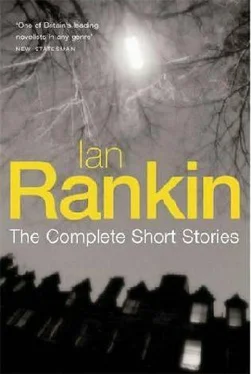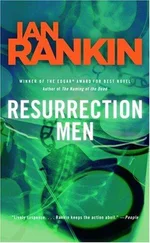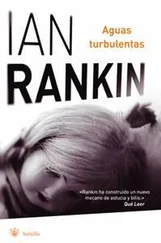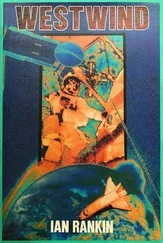‘No problem,’ I said, trying to smile.
But I was worried, all the same.
The shock wore off, and I found I had an idea.
I wanted to see if it was possible that Ray Boyd himself could have been Sophie Marshall’s attacker. I knew from Jack that Boyd had a temper, that he’d been in court for assault. It didn’t take me too long to find what I was looking for in the court records. But his previous arrests were for assaults on men, not women. They usually took place in the form of one-sided fights outside pubs. Boyd was a good fighter, by all accounts, in that he tended to lose his head and become a whirlwind, all arms and attitude, feet and ferocity. He didn’t care if you hit him back. He shrugged blows off and kept on pummelling. On the last occasion, it had taken several bystanders to drag him off his cowed opponent.
There was no mention of a girlfriend, and I didn’t want to ask Jack about her. I didn’t want him involved, not at this stage. But I had Boyd’s address, so I drove myself out there, thanking God I hadn’t yet got rid of my Ford Sierra and traded up to the Mercedes or BMW which I’d been promising myself. Where Ray Boyd lived, even a newish Sierra turned heads.
It was a mazy block of flats, eight storeys high and the colour of old dishwater. I parked my car in a bay and sat for a while, wondering what to do next. Fortunately, my wife is a birdwatcher. Her own car having been out of action last weekend, she’d borrowed mine so she and her fellow ‘twitchers’ could drive to some godforsaken spot to stare at a rare Siberian visitor. Her binoculars were still in the car. They were her second-best pair, compact in size and sheathed in green rubber. I scanned the tiers of the tower block. On the other side of the block, there were only anonymous windows, but I was parked in a kind of inner arena. This side, there were long walkways and front doors, liftshafts and stairwells. Boyd’s flat was 316, which I soon realised meant floor 3, flat 16.
Scanning what third-floor doors I could see, I eventually picked out flat 16. It looked no better or worse than its neighbours. I put the binoculars away and sat there, keeping an eye on it, pretending to read a newspaper. Even the paper, I realised, was wrong for this part of town. Not many broadsheets around here.
‘You make a lousy detective,’ I told myself.
A few children playing with a ball came to look at me. I don’t know who they thought I was but they were properly mistrustful of authority, and soon went away again. I could have been a policeman, a debt collector, or anyone. It struck me how ridiculous this was, me sitting here. But I wanted to get a look at Ray Boyd; to size him up, as it were.
When his flat door opened, Boyd came out accompanied by the witness. I wished I knew her name, but at least I knew where she stayed, Jack had told me. Boyd and his girlfriend were walking. I tried following them in the car but they were walking too slowly for this to be feasible, so I parked by the side of the road and followed on foot. After a quarter of a mile, I reckoned I knew where they were headed: the girlfriend’s flat on the Horseshoe Estate, where Sophie Marshall had lived. I’d seen enough; I headed back to my car. A policeman had already ticketed it.
Barry Cooke himself was next.
Again, I used the court records. I even had a quiet word with his solicitor. Meeting casually, we spoke of the identity parade, and laughed about it. Then I asked him about Barry Cooke. Barraclough didn’t seem surprised or suspicious that I was asking. We were just two lawyers, enjoying a bit of a chat.
The more I looked at Barry Cooke, the more feasible it all seemed. A mugging gone wrong. Violence taken too far. And the MO fitted his own: I knew that already. All he had on his side were his alibi, his protestation of innocence, and the fact that the witness had singularly failed to identify him. He was still the chief suspect. However, the police had no reason to disbelieve the witness, to suspect that she was playing some game. Not unless it could be shown that she was. I had a picture in my head: an apparent witness who has come forward not to assist the inquiry but to ensure it takes a wrong turn. That she picked me out was an accident; it could have been anybody… anybody but the actual culprit. I liked this picture and wondered if Jack could see it too.
As I was leaving the court, I saw a figure dart round a corner. I went to my car and sat in it for a moment, pretending to look for something in my briefcase, but really keeping an eye on my wing mirror. The figure reappeared, seeking me out.
It was Barry Cooke.
I drove out of the car park and a couple of hundred yards down the road to a burger restaurant, where I pulled in. I waited, but there was no sign of a following car. Now that I thought about it, I’d read in one of the court reports that Barry Cooke could not drive. It was on his side in the Marshall case, for as Barraclough had said, Cooke’s alibi was that he was at a party four miles away from where Sophie Marshall’s body had been found. No way could he have walked that distance and back. Someone would have to have driven him there, which, as Barraclough said with a smile, was most unlikely.
Still, Barry Cooke had been to court several times. So had Ray Boyd. And so, in all probability, had Boyd’s girlfriend. Any one of them might have seen Sophie Marshall before. Maybe she’d been picked out…
None of which got me any further. Proof was the thing. The police needed proof. I waited, but there was no sign of Barry Cooke, so I started the car again and drove home to my wife.
Next morning, as I parked the car outside my offices, I saw him again. He was good at being furtive, but solicitors deal with furtive people all the time, and I spotted him straightaway. I locked the car and started towards him. At first, I thought he was going to run for it, but he decided instead to stand his ground. He put his hands in his pockets and waited for me.
‘Are you following me?’ I asked.
Barry Cooke shook his head. ‘Got a right to be here, haven’t I?’
‘I saw you yesterday, skulking.’
He shrugged. ‘So?’
‘So why are you following me?’
He considered a response. Bad liars usually take their time. ‘That witness picked you out,’ he eventually said.
‘Yes?’
‘But the coppers are still hassling me.’
‘You want me to do something about it?’
He frowned. ‘No, I just… that witness picked you out.’ ‘Don’t be ridiculous. She made a mistake, that’s all.’ I paused. ‘Maybe she was paid to make a mistake.’
He narrowed his eyes. ‘How do you mean?’
But I just shrugged. ‘Now,’ I said, ‘are you going to stop following me, or must I call DI Preston?’
He screwed up his face. ‘Preston, that bastard. You’re all in it together, you lot. All matey, all favours and stuff.’
‘I don’t know what you mean.’
He just made another face and walked away. I watched him go. Then, trembling a little, I went into my office and opened a fresh bottle of brandy.
I knew I had to talk to the witness. The problem was: Would she talk to me?
It was difficult. I was finding it harder to get things straight in my mind. I knew I was in dangerous territory, and that things might get worse still. I spent all the rest of that day watching for Barry Cooke, but I never saw him. Maybe my warning was enough; maybe he was keeping his distance for reasons of his own. But someone did scratch my car. I phoned my wife and told her about it, explaining that after work I was going to get respray estimates from a couple of garages.
Then I headed out to Sophie Marshall’s estate.
I parked at a distance and had to walk down the very alley where she’d been attacked. It was a dreary spot, a narrow corridor bordered by high brick walls covered in graffiti. There was a railway line nearby, trains thundering past. A terrible place to die. I had to stop for a moment and control my breathing. But I went on.
Читать дальше












